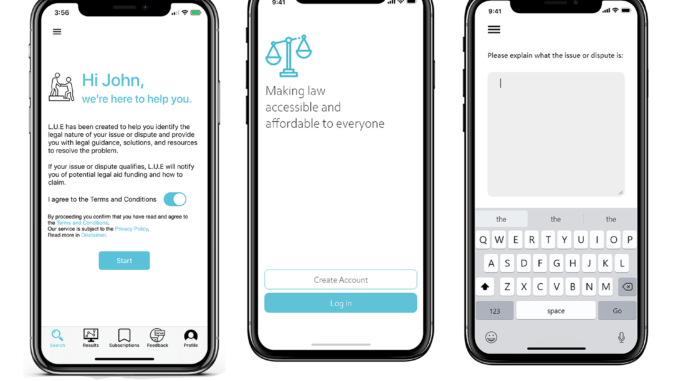
Legal AI startup, Legal Utopia – which helps consumers and SMEs to identify their legal issues and then find guidance via a mobile friendly NLP-driven app – is to join Telefonica’s AI & Blockchain Accelerator programme.
Legal Utopia founder and CEO, Fraser Matcham, said that the move will provide ‘access to capital, expertise, networks, offices, and a potentially huge customer-base to scale our subscription service‘.
He told Artificial Lawyer: ‘The programme offers vast opportunities in all areas of businesses development, marketing, research, investment, expertise, and more.
‘Legal Utopia has the potential to expose its service to Telefonica’s customers across the UK to enable rapid scaling, as well as the prospect of investment.’
The accelerator of the Spanish telecoms giant – known as Wayra – has programmes across Europe. In Legal Utopia’s case, they will join the Scottish programme, which is partnering with the University of Edinburgh’s Data-Driven Innovation Programme and is also supported by Cisco.
Having the programme in Scotland may also open up the chance to develop the app for Scottish legal needs, the startup added. [Note: in the UK, Scotland has a separate legal system from England & Wales.]
Legal Utopia has also been part of the Barclays Eagle Lab innovation space in London, but moved out at the end of 2019 to new offices.
Wayra is one of the largest corporate accelerators and was founded in 2011 as part of Telefonica’s Open Innovation Programme. Wayra has a presence in 10 countries with 193 portfolio companies so far. Legal Utopia was one of ten start-ups selected to join the accelerator in Scotland and is the only legal tech company to be part of it.
All well and good, but there are a lot of incubators and accelerators. What’s good about this one?
Matcham explained that the company will receive a £7,500 ($9,670) travel grant to facilitate weekly visits to Edinburgh for the four-month programme, with the ‘potential to receive further investment from Telefonica and the University of Edinburgh’.
The company will – at least in theory – potentially have ‘access to Telefonica’s 346m global customers and investment network’ – some of whom are in the UK. And that sounds impressive, and perhaps very useful to a startup focused on helping consumers, which Telefonica has a lot of.
The programme also provides:
- Access to world leading expertise in AI and Blockchain technologies;
- 1-to-1 business support and mentorship;
- Training, bootcamps, workshops and programmes by coaches and mentors;
- Use of a dedicated facility at the Bayes Centre, University of Edinburgh;
- Telefonica staff support for start-up business opportunities;
- Access to Scotland’s entrepreneurial ecosystem for networking, events, funding, collaboration and more;
- Tailored support from Scottish Enterprise.
Matcham concluded: ‘I am so pleased to have joined such a well-regarded accelerator programme in Edinburgh after successfully launching our MVP (minimum viable product) in late-2019.’